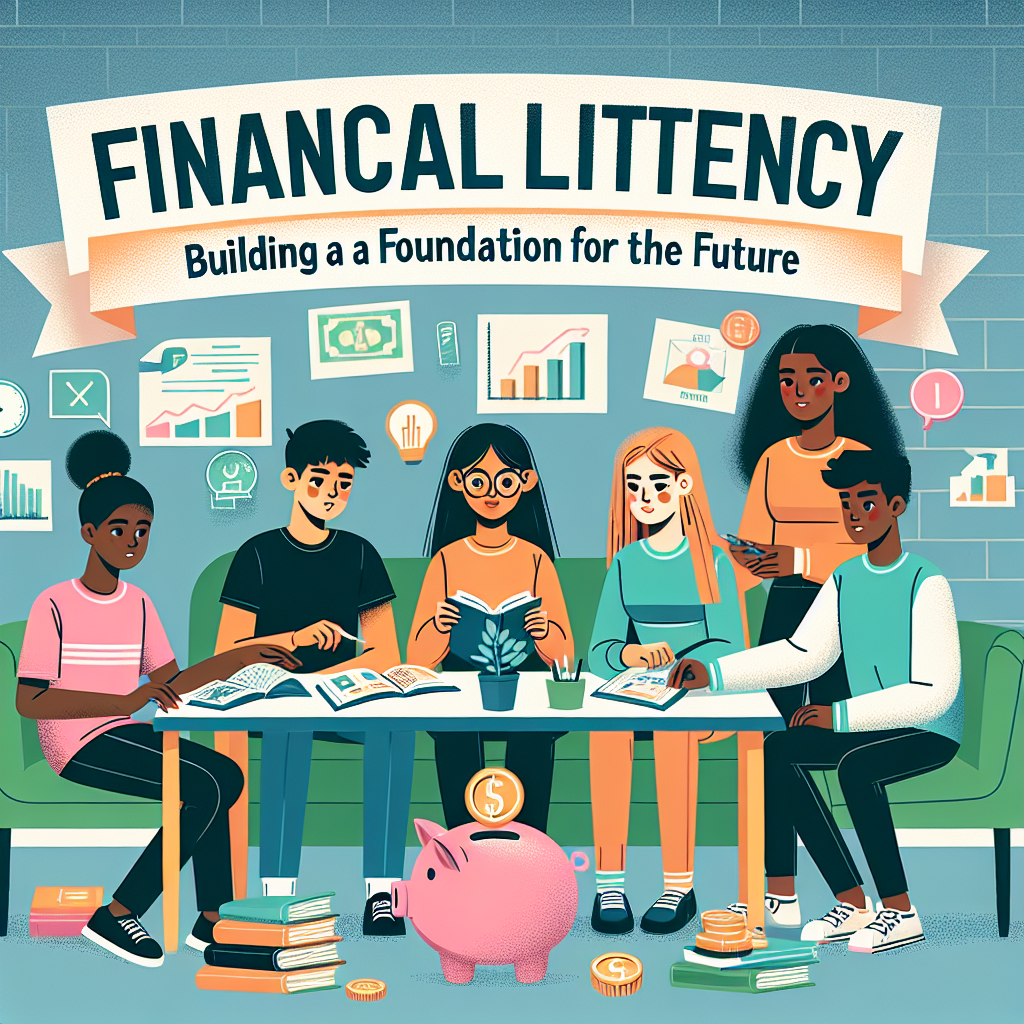
Hey there, got a minute? Let’s dive into a topic we all wish we knew more about when we were younger—financial literacy for teens. Trust me, this is essential knowledge that can make or break your future bank accounts.
Understanding money isn’t just for Wall Street big shots; it’s crucial for everyone, especially teens. This guide will get you started on building a solid foundation.
Contents
Why Financial Literacy Matters for Teens
Teens today face a world filled with credit cards, student loans, and online shopping. Understanding money is more than just saving for the next mega-sale. It’s about knowing how to manage credit, understand investments, and plan for the future.
Key Skills for Financial Literacy:
- Budgeting: Knowing where your money goes.
- Saving: Building a nest egg for unforeseen expenses.
- Investing: Growing your money over time.
- Credit Management: Understanding credit scores and debts.
The Urgency
According to a recent study, many teens today lack basic financial skills. They often graduate without a clue about loans, credit, or budgeting. This isn’t just an oversight; it’s a crisis.
Setting the Stage for Financial Success
Now, how do you build this foundation? Let’s start with the basics and work our way up.
Budgeting
Budgeting is the backbone of financial literacy. It’s all about knowing where your money goes.
- Track Spending: Start by noting every dollar spent.
- Set Limits: Define limits for different categories like food, clothes, and entertainment.
- Review Regularly: Adjust based on what’s working and what’s not.
Saving
Saving isn’t just for a rainy day—it’s for your future.
- Open a Savings Account: Look for one with high interest.
- Set Automatic Transfers: Make saving as effortless as possible.
- Create Goals: Define what you’re saving for, like college or a car.
Investing
Sure, investing sounds complex, but it’s not just for the stock market moguls.
Types of Investments:
- Stocks: Buying shares in companies.
- Bonds: Loans to the government or corporations.
- Mutual Funds: Pooling money with other investors.
Investing is about making your money grow over time. Understand the risks and returns, and maybe talk to someone who’s been there, done that.
Understanding Credit
Credit is more than just plastic cards and numbers.
- Credit Score: A measure of how trustworthy you are with borrowed money.
- Responsible Use: Pay off your credit card each month.
- Avoid High-Interest Loans: These can become a trap.
Tackling Real-World Scenarios
Alright, let’s get into some scenarios that you’ll probably face.
Working a Part-Time Job
Balancing work and school can be tricky. But having a part-time job teaches responsibility and money management. Just make sure to save a portion of what you earn and not blow it all on the latest gadgets.
Handling Student Loans
Thinking about college? Then student loans might be in your future. Understand the terms before signing anything. And remember, scholarships and grants are money you don’t have to pay back.
Table: Financial Literacy Toolkit for Teens
| Skill | Description | Actionable Steps |
|---|---|---|
| Budgeting | Track and limit your spending. | Use a budgeting app to track purchases daily. |
| Saving | Set aside money for emergencies and goals. | Open a savings account with automatic deposits. |
| Investing | Learn about stocks, bonds, and funds. | Start with a low-cost index fund. |
| Credit Use | Borrow responsibly and manage credit scores. | Pay off credit cards on time to build positive history. |
| Understanding Loans | Comprehend loan terms and conditions. | Research and seek advice before taking out loans. |
Frequently Asked Questions
How do I start teaching financial literacy to my teen?
Start with everyday conversations about money. Point out examples like grocery shopping or paying bills. Encourage questions. Maybe even use apps designed for teens to get the ball rolling.
What role do schools play in financial literacy?
Schools play a crucial role. They can incorporate lessons into math or economics classes. However, this is often insufficient, so balancing what they learn in school with real-world lessons at home is key.
Why is it important to discuss money openly with teens?
Discussing money openly destroys the taboo around financial topics. It equips teens with the knowledge that they are likely to use daily. Open dialogue helps them ask questions and learn from mistakes without fear.
Conclusion
Financial literacy for teens—it’s not just numbers on a page. It’s about setting a future that they’re prepared to take on. With smart budgeting, saving, investing, and credit management skills, we can set them on the right path. If you want more tips on steering through these financial waters, check out this guide.
Remember, the journey to being financially savvy starts with one step. Or in this case, one saved dollar. Happy saving, folks!






